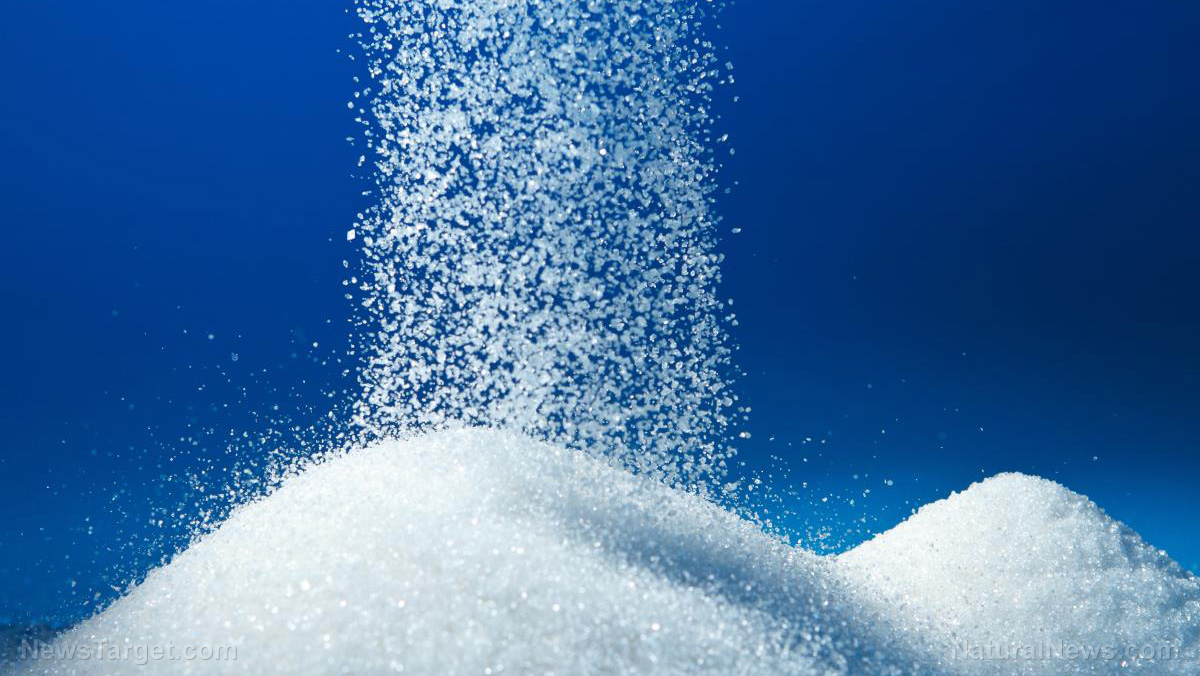Sugar: Cheap, effective wound treatment with a long shelf life
08/10/2019 / By Edsel Cook

Processed sugar is bad for the health when consumed in sugary foods or sweetened beverages. However, it can potentially save lives when applied to wounds as a disinfectant and healing ingredient.
In ancient times, Egyptian healers used sugar to speed up the healing of injuries. During the Napoleonic wars, soldiers stuffed sugar into wounds inflicted by muskets until their companions could drag them to the nearest military surgeon.
In a pilot study, researchers from the U.K. investigated the potential of three types of sugar — Demerara, granulated beet sugar, and granulated cane sugar — as antimicrobials. They tested them against 18 Gram-positive and Gram-negative bacteria.
The results of their experiment showed that sugar prevents the growth of harmful bacteria. In particular, high concentrations of sugar causes complete inhibition.
All three types of sugar displayed antimicrobial activity. However, the granulated sugars performed slightly better than Demerara sugar.
When applied to necrotic wounds, granulated beet and cane sugars cleaned the injuries at an average rate of 11 days. They also significantly reduced pain and bad odors.
The use of sugar to debride the wounds of patients with insulin-dependent diabetes did not affect their blood sugar levels. It also worked on patients with methicillin-resistant Staphylococcus aureus (MRSA) and baseline Staphylococcus infections. (Related: Safety first: Tips for stocking your First Aid kit before SHTF.)
Adding sugar to a wound keeps it dry and inhibits bacterial growth
Sugar is a hydrophilic substance that attracts and absorbs water. It assists in wound treatment through a process called osmosis.

When applied to a wound, sugar draws water away from the area and into its granules. By soaking up the moisture in the area, it makes sure that bacteria can’t thrive in the wound. This allows the injury to heal faster.
The osmotic effect of sugar works by dehydrating the harmful bacteria responsible for wound infections. When deprived of life-giving water, these microorganisms grow frail and feeble, just like more complex organisms.
Dehydrated bacteria lack the energy to increase in number or perform other vital activities. Eventually, they die.
Thanks to its hydrophilic property and osmotic effect, granulated sugar serves as an effective antimicrobial when directly applied to wounds. Sugar is not only cheaper than antibiotics, it also doesn’t have any adverse effects when used to suppress bacterial infections in wounds.
How to make your own sugar-based healing salve
Processed sugar may be dissolved and mixed with honey or oil. Doing so makes an ointment that is much easier to administer on a wound as a healing salve.
In the absence of honey or oil, petroleum jelly makes for a good alternative. The viscous substance can help sugar spread throughout the wounded area, ensuring that it covers as much of the injury as possible.
Another good recipe for a sugar-based ointment is sugar mixed with 10 percent povidone-iodine. Iodine is an effective antimicrobial, and sugar can make sure that bacteria do not recover.
When confronted with a wound, check to see if it is bleeding. Only apply the sugar-based healing salve if it doesn’t bleed or after it has stopped bleeding. After applying sugar, place a loose binding on the wound.
In case there is no time to prepare an ointment, sprinkle granulated sugar across the wound. The granules will work well enough on their own.
Repeat the sugar-based wound treatment three or four times a day. Before applying a fresh batch of sugar, rinse and clean the wound with water. Read about more natural antibiotics at NaturalAntibiotics.news.
Sources include:
Submit a correction >>
Tagged Under:
alternative medicine, Antimicrobial, bacterial infections, bug out, clean food, DIY, emergency medicine, first aid, folk medicine, food cures, food is medicine, functional food, granulated sugar, green living, home remedies, how-to, iodine, Methicillin-resistant Staphylococcus aureus, natural cures, natural medicine, off grid / off the grid living, osmotic effect, petroleum jelly, preparedness, prepper, prepping, prevention, processed sugar, research, Staphylococcus infections, sugar-based ointment, survival, survival gear, survival medicine, survivalist, sustainable living, wound debridement, Wound Healing
This article may contain statements that reflect the opinion of the author





















